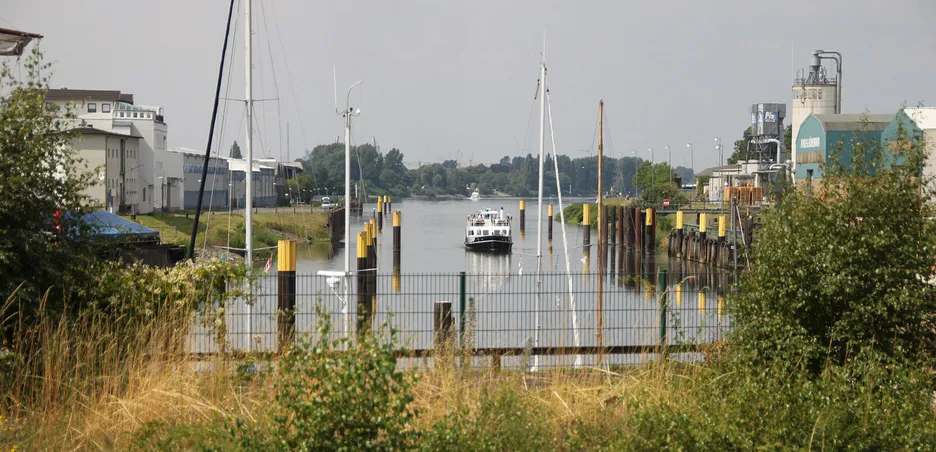Polders: Built on water
Leading Bremen's urban landscapes into the future in a climate-friendly way
Semester Project B.Sc. Landscape Architecture and Planning, Winter Semester 2023/2024
Topic
Bremen has always been in direct contact with the water. Harbours brought industry and prosperity to the city and extensive polder structures made the wet Weser marshes usable for agriculture. In the meantime, however, deep-sea trade has become less important, which has led to an enormous upheaval in urban development. Particularly in the harbours and industrial areas close to the city, public spaces between the water and the city need to be improved and new living space created. However, the effects of climate change are also being felt in Bremen. Climate and flood protection, a fair distribution of space and biodiversity affect both Bremen's sensitive cultural landscapes and the dense and sealed residential and commercial areas in and around the old deep-sea harbours. Climate-friendly and liveable urban landscapes become particularly important under these conditions.
Task
Initially, various aspects of Bremen will be analysed, described and evaluated in groups. During the excursion, an intensive examination of the location is planned, especially the design areas at Hohentorshafen harbour and the Weser-Polder transect. Following the joint analysis, the landscape architecture specialisation will develop a detailed design for a sustainable open space at Hohentorshafen. On a larger scale, the Landscape Planning specialisation is dedicated to the question of how Bremen and the Weser-Polder transect in particular can be adapted to the consequences of climate change and how biodiversity can be increased.
Supervision
Prof. Regine Keller, M.A. Gero Engeser, M.A. Theresa Finkel (Korrekturassistenz)



























